May 15, 2018
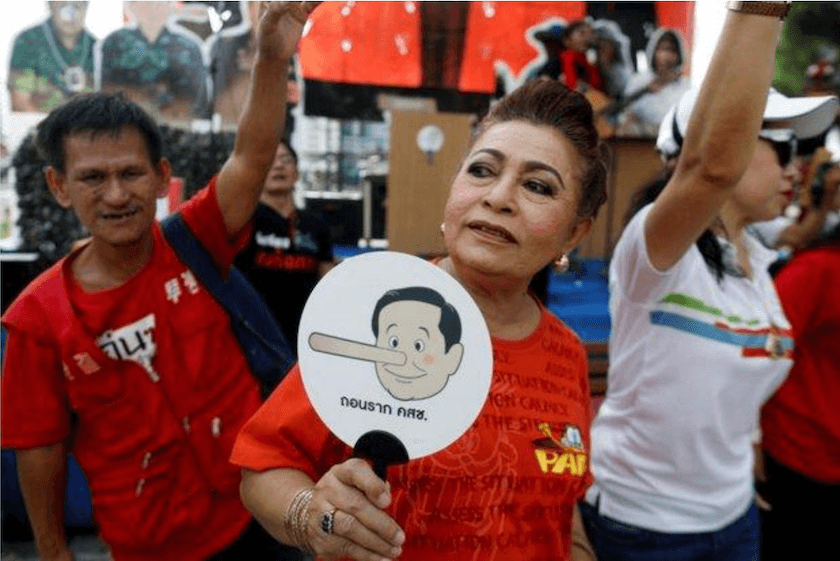
Photo: Protesters in Thailand, demanding the junta stop rescheduling elections. Bangkok Post.

The scandal embroiling the legal team of President Trump heated up further this week. Michael Cohen, a Trump lawyer, was exposed for exploiting his closeness to the president as a way of signing on to lucrative consulting contracts with major American companies. AT&T, an American telecommunications giant, and Novartis, a major pharmaceutical company, both hired Cohen for his promised insight into Trump’s thoughts and policies. Having come to view the contracts as a scam, both of these companies have called the deals a mistake. Regardless, the surfacing of this information presents a grave concern for the fairness of information and policy. If Cohen had delivered on his proposals, he would have given insider information to only those companies that paid him specifically for it. The reveal also raises suspicion and alarm over whether President Trump himself knew about the deals. If so, a corruption or otherwise tremendously serious scandal could ensue. Another member of the legal team, the newly recruited Rudy Giuliani, has also furthered the chaos surrounding the White House this week. In keeping with his media trend of last week, the lawyer has again revealed information about agreements andpayments with a Russian company that could be detrimental to both the president and the ongoing investigation into the 2016 election.
In the international realm, the new US embassy in Jerusalem is sparking turmoil. Saudi Arabia has warned that the move will increase instability in the Middle East, a leader of Al-Qaida hascalled for jihad, and protests in Gaza have turned deadly. Haaretz reports that Israeli gunfire there has killed at least 37 Palestinians and left more than 1600 injured so far. The US had been fully aware that this would be a deeply troubling and divisive move, but its true magnitude is as of yet still unfolding.

A strike by Israel on Iranian targets in Syria has left at least 42 dead this week. The attack was reported by the Israeli military to have hit nearly all of Iran’s military installations in the country, specifically weapon storage locations, logistics sites, and intelligence centers. The Syrian Observatory for Human Rights, a monitoring group from the UK, has added that many of these sites were posts for Iranian-backed Syrian militias near Damascus. Israeli Prime Minister Benjamin Netanyahu made a statement regarding the strike directly to Syrian President Bashar al-Assad, telling him that this was an attempt to send a clear message. “We are in the midst of a protracted battle and our policy is clear: We will not allow Iran to entrench itself militarily in Syria.”
In other developments on the Syrian War, the ninth round of peace talks have begun. Sponsored by Iran, Russia, and Turkey, the assemblage is this time notably missing the United States. Regarding the absence, Russian presidential envoy Aleksandr Lavrentyev stated, “We are hoping that common sense will prevail and they [the United States] will take part in our session.” Although Russia and Iran support the reinstatement of President Assad, it is likely that Turkey – the other major involved country supporting the control of rebel groups – would also appreciate the return of the US to the talks.
Despite international deliberation for other solutions, the Syrian government has continued this week to reclaim territory and restore a higher degree of order in the country. Military forces madeadvances into an area of southern Damascus, with terrorists there suffering heavy combative losses. In Babila, a city further outside of Damascus, the Syrian flag was raised for the first time after years of persistent terrorist activity.

Yesterday, the government finally agreed to permit the Inter American Human Rights Commissions and UN to investigate the killings and police violence that has taken place during the last few weeks protests. President Ortega has been under pressure by the Catholic Church and the country’s bishops to agree to an independent enquiry. On Wednesday, May 9th, tens of thousands took part in one of the largest protests so far. Monica Baltodano, who was part of the Sandinista movement that overthrew the US-backed Somoza dictatorship in 1979, commented on the miscalculations of Ortega, saying “He should know that the more people you kill, the more people join the struggle to overthrow a dictator”.

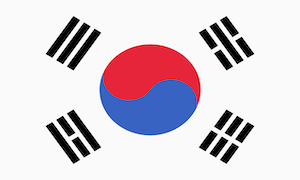
With the international summit approaching, and the date now set for June 12, preparations and negotiations are well underway. Making international headlines was the recent release of three US citizen prisoners from North Korean prisons. This is a hugely symbolic advance for the nations. Additionally, North Korea has submitted a request to open new international air routeswith the International Civil Aviation Organisation, in an apparent move forward toward global integration.

Nelson Chamisa, leader of the opposition Movement for Democratic Change (MDC), will be meeting senior UK government officials including the Labour leader Jeremy Corbyn and Foreign Secretary Boris Johnson during his weeklong visit to the country. During a meeting earlier this week, he expressed concerns and wishes for Britain and the EU to support free and fair elections, ‘Because for a long time, the British government has been emphasising norms, values – let those norms and values of free and fair elections be respected. That is all we want – we’re not asking for money. We’re asking for the solidarity of a global coalition for free and fair elections’. Chamisa also spoke at a campaign rally in Buhera on Saturday, saying he was confident of running over Zanu PF presidential candidate, Emmerson Mnangagwa in elections expected in the next few months, and urging the military to support the people’s choice.
Former UN secretary general Kofi Annan will meet with legislators in Victoria Falls this weekend, a retreat for all political parties represented in Parliament, jointly organized by the Zimbabwe Institute and the Kofi Annan Foundation, with the purpose of debating amendments to the country’s electoral laws.
A splinter faction of the Movement for Democratic Change (MDC-T) officially launched the party’s election campaign and manifesto‚ with the theme “Building an Economy to Support Transformation”. Their key issues are much the same as the once targeted by Zanu-PF, but MDC-T is focusing on workers right to organise, full respect of labour rights and their place in the economy.
In other news, Josphat Mungwariri Ushewokunze, founder and President of the Zimbabwe Democratic Change (ZDC), an aspiring presidential candidate in the forthcoming general election has reportedly died in a car crash on the eve of the launch of his political party.
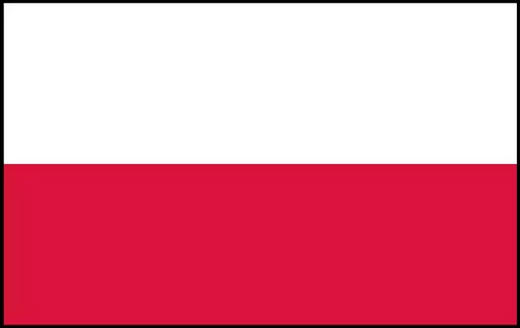
The World Health Organization (WHO) has said it is preparing for “the worst case scenario” with regards to the recent outbreak of the deadly Ebola virus in the country. A total of 32 suspected, probable and confirmed cases of Ebola have been registered in Congo since early April. 18 people are suspected to have died as a result of the virus during the past few weeks. The average Ebola fatality rate is about 50 percent, and reportedly, WHO will be start sending vaccines as soon as possible. This is the ninth time Ebola has been recorded in Congo, and the last reported outbreak was in May 2017.
In addition, UNICEF has warned that up to 400,000 children are at risk of starving to death in DRC unless humanitarian aid efforts are ramped up. The agency is calling for $88m to address the crisis. Their report released on Friday says the unstable situation and clashes between regional militia and government forces is severely affecting the most vulnerable children in the region.
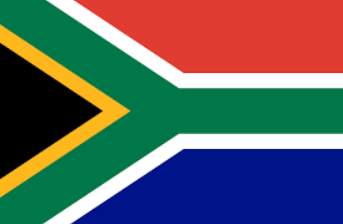
On Sunday, a suspected explosive device was discovered in Imam Hussain Mosque on the outskirts of Durban, where a deadly knife attack also had occurred on Thursday. Reportedly, three men had stormed the building shorty after afternoon prayers, killing one man and critically injuring two others. The Democratic Alliance, Christians of South Africa (Cosa) and others have condemned the violent act, and the attack on South Africans’ rights to religious practices. A Muslim leader said the mosque had received previous threats and was targeted because it was a Shia place of worship, exposing deep tension between the Shia and Sunni population.
This week, the national government has taken over direct administration of the North West province, where violent protests took place last month, as the population is demanding jobs, housing and an end to corruption. There have also been calls for the regional premier Supra Mahumapelo – a political ally of former president Jacob Zuma – to resign due to accusations of corruption and the misuse of state funds. He has refused, but reportedly he has now gone on leave. It is the first time in South African history that the national government has taken control of an entire provincial administration. The decision to intervene was taken by president Cyril Ramaphosa, as he has made the fight against corruption a priority.

Vietnam requested that China withdraw its military equipment of anti-ship cruise missiles and surface-to-air missile systems from South China Sea outposts, saying its presence seriously violates sovereignty, increases tension and destabilizes the region.
On Thursday, chief accountant of the state-run Vietnam Oil and Gas Group Binh Son Refining and Petrochemical Co. Ltd. was arrested on suspicion of embezzlement and “abusing power to appropriate property”. According to the penal code, if found guilty, he may face life in prison. The arrest is part the government’s crackdown on corruption.
People’s Court of Ho Chi Minh City convicted 56-year-old Bui Hieu Vo on Wednesday to 4-1/2 years for carrying out anti-state propaganda. He was jailed for Facebook posts that “distorted” the political situation in the Southeast Asian country. Police in the northern city of Thanh Hoa also said they had arrested 37-year-old Nguyen Duy Son over Facebook activity attempting “to defame party, state and provincial leaders”.
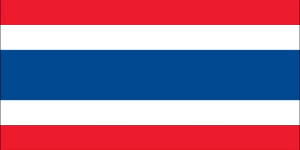
On Saturday May 5, another protest took place at Thammasat University where the group gave the military government until May 22 to meet their three demands: an election by November of this year, the junta to step down, and the soldiers to return to their barracks. 600 police, more than the protesters themselves, were deployed in the interest of “security.” The demonstrators also urged the National Council for Peace and Order (NCPO) to step down from power. General Wanlop said security officers are assessing the situation, but he does not expect it to “spiral out of control.” He did, however, warn the protesters to avoid violence. P-Move, the organizing group, has planned a large pro-democracy gathering from May 19 to May 22. In the meantime, the group will end its demonstrations until then as long as the ruling junta keeps the promises it made.
On Sunday April 30 1,250 people gathered in protest of a proposed luxury housing development in the forested land at the foothills of a sacred mountain. They gave the government seven days to change the development plans or face more mass gatherings. On Sunday May 6, meeting this deadline, the government held talks with the environmental activists, eventually agreeing not to develop on the land and the activists declared this a victory. In the intervening days green ribbons decorated various object in public places to symbolize the environmental movement. One of the movement’s leaders says he hopes this success will empower other groups to take action to remind the government it must consider the opinions of the locals.

The Phnom Penh Post, often seen as the last bastion of free press in the country, has been sold to a PR firm with links to the prime minister. Phil Robertson, deputy Asia director of Human Rights Watch, has called this a “staggering blow to press freedom in Cambodia” and the takeover was followed by several firings of editors and reporters. Still others resigned in protest. Rights advocates and journalists suspect this sale may be related to the upcoming elections, which incumbent prime Minister Hun Sen hopes to win.
Cambodia has made its first arrest under the new lese majeste law, which prohibits speech critical of the monarchy. A teacher was arrested for allegedly insulting the king in a Facebook post.
The registration period for political parties began on Monday and will end on May 14. The ruling Cambodian People’s Party, Hun Sen’s party, was among the first to register as well as the little-known pro-government Cambodian Youth Party and the Cambodian Nationality Party. A spokesperson for the NEC said that over 15 parties have collected forms to fill in and, originally, expected all to send in their applications. The estimate has been revised to around 10 parties. However, as of Monday, the final day to apply, only four parties had been registered. In response, the NEC has extended the deadline for those parties currently in the process. Some parties, like Candlelight Party and Human Rights Party, which both have ties to the dissolved CNRP, have refused to participate in the process.
Separately, a court denied bail to Kem Sokha yet again. His lawyers say his health is failing after months of detention, and still no court date has been set.

Last week, an envoy from the UN Security Council arrived in Myanmar for the first high-level diplomatic mission to the country since last year. On Wednesday May 9 the Security Council released a statement exhorting Myanmar to hold accountable those responsible for the atrocities committed against the Rohingya. The Council has scheduled an open briefing on the trip for May 14, where members will discuss how to work with Bangladesh and Myanmar and the new U.N. special envoy “to resolve the crisis and create the conditions” so the Rohingya can return home. Four human rights groups at an earlier news conference at the UN headquarters in New York recommended the council immediately ask the International Criminal Court (ICC) to open an investigation for crimes against humanity in Myanmar. The Wednesday statement did not address this request.
Foreign ministers and diplomats of the Organisation of Islamic Conference (OIC) set up a campaign committee during two days of talks in the Bangladesh capital. The Muslim nations intend to pressure the international community and Myanmar to take action against those allowed and performing atrocities targeting the Rohingya Muslims in Myanmar.
This week more than 400 Internally Displaced Persons (IDPs) arrived in a small town to take shelter in the churches there from the ongoing conflict between the Myanmar military and the Kachin Independence Army. While the hostilities have not ceased, both sides have agreed to allow the civilians to leave the villages caught in the crossfire. Meanwhile, three antiwar activists were charged on Wednesday May 9 with violating Article 19 of the Peaceful Assembly and Procession Law, which insists demonstrations may only be held with the permission of local authorities.

While the main opposition coalition continues to urge citizens to boycott the “sham” elections, Henri Falcon faces yet another challenge: a rival candidate, Bertucci. Bertucci has been lagging in the polls and has barely been considered a challenger to President Maduro, but recently begun to climb in the polls. This is dividing what little support Falcon may get from opposition supporters who decide to vote.
Maduro announced he will hold another peace talk with “every political and social force in the Latin American country” — once he’s elected. Late last year, peace talks between Maduro and the opposition ended when the opposition declined to sign an agreement, and were still unsatisfied when the electoral board pushed the election back to May 20. He also says, if re-elected, he will win the “economic war” being waged against his country by the “oligarchs” who have plunged the country into economic crisis. He went on to say his critics will “get their comeuppance” and accused businesses of colluding to raise prices in order to sow discontent among voters.
The US has imposed yet more sanctions on Venezuela, now targeting three individuals tied to Maduro and 20 companies owned or controlled by those three. The sanctions are not expected to impact the economic lives of average Venezuelans; none of the sanctions will target the oil sector, although the idea is still under consideration, according to an anonymous administration official. US Vice President Pence has called on the Organization of American States to suspend Venezuela’s membership and the individual states to cut off the nation’s leaders from financial systems and restrict their travel visas. He also demanded Venezuela suspend the May 20 election, expecting voter intimidation and manipulation of data: the country promptly rejected the demand.

Three election candidates across Mexico have been murdered in the past two weeks. The most recent was a Morena (leftist party of presidential candidate Andrés Manuel López Obrador) candidate for mayor in the state of Guanajuato. Just three days earlier, a state assembly candidate for the ruling Institutional Revolutionary Party in Mexico’s western Guerrero state was killed. On May 4, another Morena mayoral candidate was killed. Unfortunately, these killings are not out of the ordinary: since campaigning for the July elections began in September 2017 more than a hundred candidates have been killed.
A poll by GEA-ISA showed on Thursday that López Obrador is losing his strong lead in the polls as Anaya narrows the lead. The polls shows López Obrador at 29 percent, up one percentage point, and only five percentage points ahead of Anaya, compared to six points before the first presidential debate. Ruling party PRI candidate Jose Meade is holding steady at 20 percent. The poll did not remove undecided voters from the results, as some polls do.
A journalist was fired from his job at Mexico’s largest media company, Televisa, for a tweet which was seen as inciting violence against the presidential candidate Andrés Manuel López Obrador.
López Obrador recently said he would consider decriminalizing many drugs in in an effort to get a handle on the drug-related violence in Mexico. He is keeping a similar tone as he has in the past: previously, he suggested amnesty deals with the “narcos” leaders, which earned him some harsh criticism.
In other news, the last round of NAFTA talks concluded on Friday, with Mexico clashing with the US on many issues including content rules and dispute-resolution
Maldives – Maldives chief justice Abdulla Saeed has been sentenced to nearly five months in prison on charges of obstructing government administration and justice. – South China Morning Post
Guatemala – Guatemalan president Jimmy Morales has asked Sweden and Venezuela to remove their ambassadors, accusing the diplomats of “interfering in domestic politics” and falsely calling the entire country corrupt. – Reuters
Indonesia – Prominent Muslim scholars from Indonesia, Afghanistan and Pakistan met at the Ulema Conference in Jakarta on Friday, where they issued a declaration on the war and peace in Afghanistan, condemning the Taliban’s war against the Afghan government as illegitimate, and saying that all sides agreed to work together with regional and global Islamic scholars to bring about peace and stability in the country. – Tolo News
Hungary – The government has recently announced its plan to further tighten the NGO bill. This will further restrict the rights and operations of organizations receiving foreign funding, plus give the government further authority to intervene or shut down any such NGOs that it deems a “national security risk.” – US News & World Report